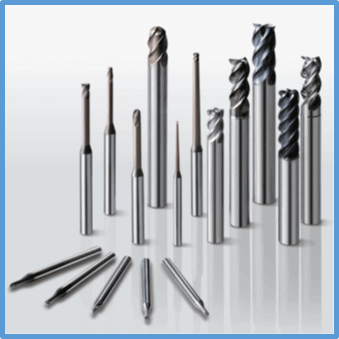Solid Carbide Tooling

Solid Carbide Tools: Unveiling the Pinnacle
of Precision Machining
In the realm of precision engineering and
advanced manufacturing, the quest for superior tools that can withstand the
rigors of modern machining operations has led to the evolution of materials and
designs. Solid carbide tools, revered for their exceptional hardness, wear
resistance, and performance, stand as a testament to the relentless pursuit of
excellence in tooling technology. This article delves deep into the intricacies
of solid carbide tools, elucidating their properties, applications, and transformative
impact on the world of machining.
1.
Introducing Solid Carbide Tools
Solid carbide tools, as the name implies,
are cutting tools crafted entirely from carbide—a composite material renowned
for its unparalleled hardness and durability. By leveraging the unique
properties of carbide, these tools offer superior performance and longevity
compared to their traditional counterparts.
2. The
Chemistry Behind Carbide
Carbide, often a combination of tungsten (W) or titanium (Ti) with
carbon (C), forms a compound characterized by its:
● Exceptional Hardness: Resists wear and
deformation, ensuring prolonged tool life.
●
High
Thermal Stability: Maintains integrity at elevated temperatures, crucial for
high-speed machining operations.
● Chemical Inertness: Resists chemical
reactions, facilitating machining of a diverse range of materials without tool
degradation.
3. Advantages of Solid Carbide
Tools
The utilization of solid carbide tools offers a plethora of benefits:
● Extended Tool Life: Superior wear
resistance translates to reduced tool replacements and associated downtime.
●
Enhanced
Surface Finish: Produces smoother finishes, minimizing post-processing and
enhancing component aesthetics.
●
Optimized
Performance: Enables higher cutting speeds and feeds, enhancing productivity
and efficiency.
● Versatility: Accommodates a wide range of
materials, from soft alloys to hardened steels and exotic metals.
4. Applications Across
Industries
Solid carbide tools find widespread applications across various
industries, including:
● Aerospace Engineering: Facilitating the
machining of complex components with stringent tolerances and quality
requirements.
●
Automotive
Manufacturing: Enabling the production of precision parts, from engine
components to intricate assemblies.
● Medical Device Production: Catering to the
fabrication of intricate instruments and implants, demanding unparalleled
precision and reliability.
5. Innovations and Future
Trends
The evolution of solid carbide tools continues to shape the future of
machining:
● Advanced Coatings: Integration of
specialized coatings, such as titanium nitride (TiN) or diamond-like carbon
(DLC), further enhancing performance and longevity.
●
Customized
Tooling Solutions: Tailoring tools to specific applications and materials,
optimizing performance and efficiency.
● Integration with Smart Technologies:
Incorporation of sensor technology and data analytics, enabling real-time
monitoring and optimization of machining processes.
Conclusion
Solid
carbide tools, with their blend of exceptional properties and innovative
design, epitomize the pinnacle of precision machining technology. As industries
continue to push the boundaries of innovation and excellence, the role of solid
carbide tools as indispensable assets in modern manufacturing remains
unequivocal. Through their transformative impact on machining performance and
reliability, solid carbide tools reaffirm the timeless principles of precision,
efficiency, and innovation, underscoring their indispensable role in shaping
the future of manufacturing.

